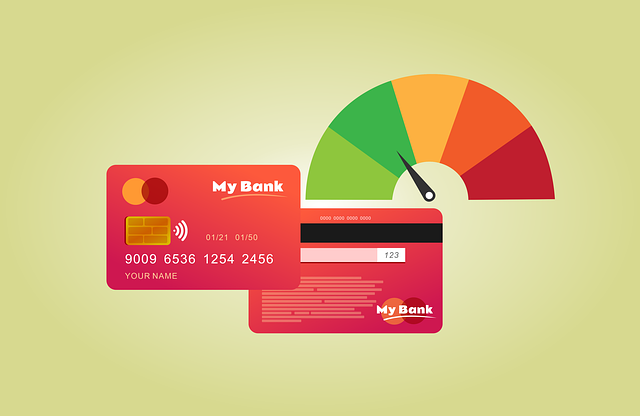In real estate, credit scores are vital indicators of financial health that impact loan terms and interest rates. Higher scores lead to better mortgage deals due to lower risk for lenders, while lower scores result in less favorable conditions. Maintaining and improving credit scores is crucial for accessing better financing options and saving money over time in the competitive real estate market. Regularly reviewing credit reports, making timely bill payments, managing debt responsibly, and diversifying credit types can significantly enhance creditworthiness, ultimately securing more attractive loan terms.
In the competitive world of real estate, understanding your credit score is key to securing favorable loan terms. This article demystifies the relationship between higher credit scores and better interest rates, offering valuable insights for both first-time buyers and seasoned investors. By exploring the impact of credit scores on real estate financing, we provide actionable strategies to help you achieve optimal rates. Discover how improving your score can translate into significant savings and enhance your homeownership journey.
Understanding Credit Scores in Real Estate: How They Impact Rates

In the realm of real estate, understanding credit scores is paramount for both buyers and sellers. A credit score acts as a financial snapshot, reflecting an individual’s borrowing history and overall creditworthiness. Lenders use this score to assess risk when offering loans, which directly impacts the interest rates and terms presented to borrowers. Higher credit scores signify better financial health and lower default risks, often translating to more favorable rates in the real estate market.
When purchasing a property, a strong credit score can unlock competitive mortgage rates, saving substantial amounts over the life of the loan. Conversely, lower scores may result in higher interest rates, adding up to thousands of dollars extra over time. Thus, maintaining or improving one’s credit score is a strategic move for anyone aiming to secure the best possible terms when buying or selling real estate.
The Relationship Between Higher Scores and Favorable Loan Terms

In the realm of real estate, higher scores hold immense significance when it comes to securing favorable loan terms. A credit score, often described as a numerical representation of an individual’s financial health, plays a pivotal role in determining the conditions attached to borrowing money for significant purchases like homes or investments. Lenders consider these scores as a quick indicator of repayment ability and risk associated with lending.
When borrowers present higher scores, lenders interpret it as a sign of financial responsibility and trustworthiness. This often leads to more attractive loan offers, including lower interest rates, reduced fees, and increased borrowing limits. Conversely, lower credit scores may result in less favorable terms, higher borrowing costs, or even denial of loan applications. Thus, maintaining and improving one’s credit score can be a game-changer for real estate transactions, ensuring better access to financing options and ultimately saving significant amounts over the life of a loan.
Strategies for Achieving Better Rates: Tips to Boost Your Credit Score

Achieving better rates in real estate often hinges on a robust credit score. Here are some strategies to enhance your creditworthiness and secure more favorable terms. First, regularly review your credit report for errors or discrepancies; accurate information is key to a strong score. Secondly, pay all bills on time; late payments can significantly damage your rating.
Consider maintaining a balanced debt-to-income ratio by paying down high-interest debt. Additionally, diversify your credit mix by using different types of credit responsibly. Building a solid history of timely payments and keeping balances low will gradually improve your credit score, opening doors to better rates on mortgages and other loans in the real estate sector.






